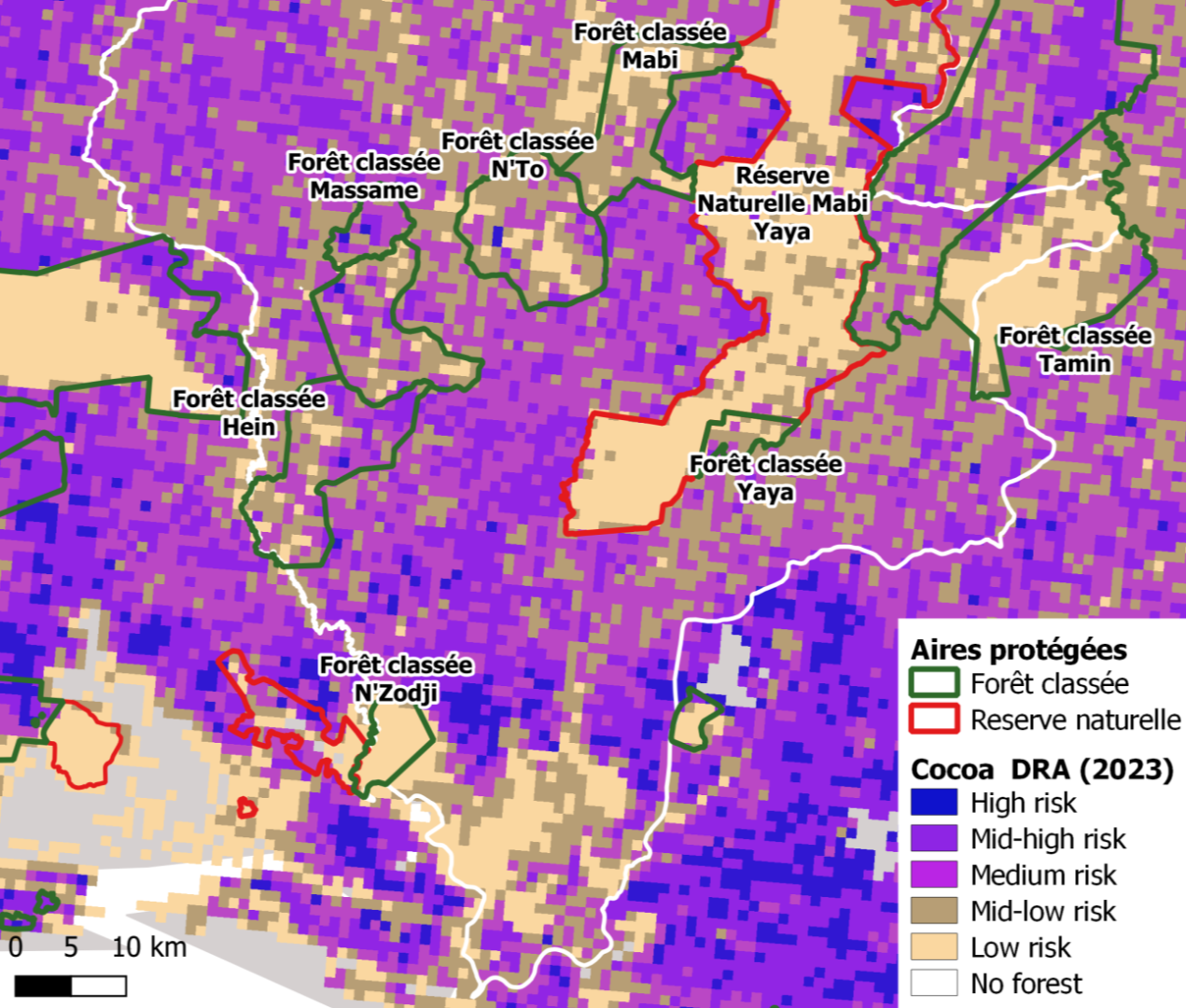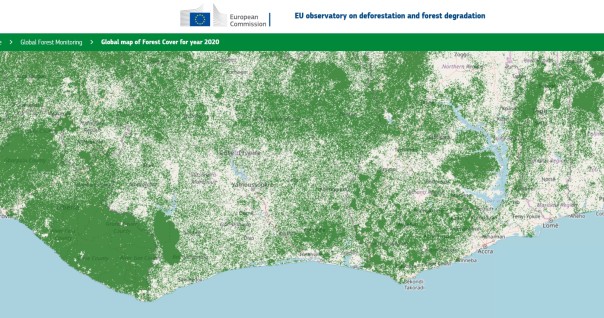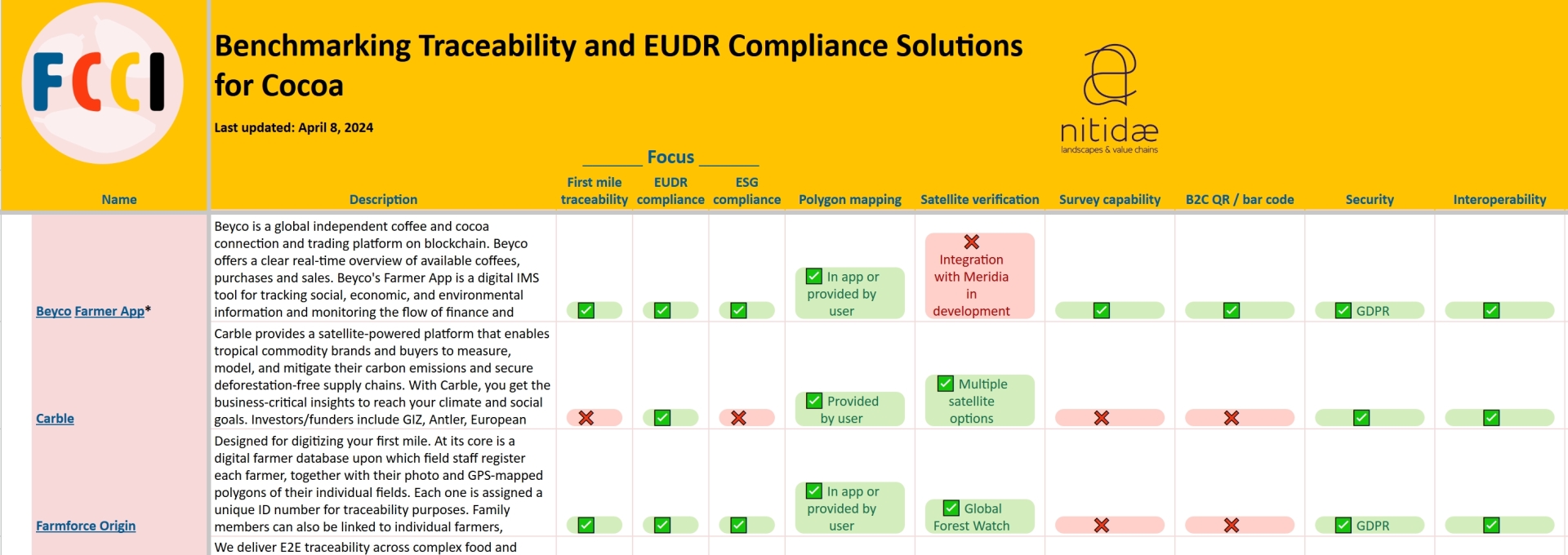

Benchmarking Traceability and EUDR Compliance Solutions For Cocoa
What this is
We created this preliminary benchmarking of traceability and EUDR compliance solutions to support cocoa producers, cooperatives and associations, and exporters to critically compare existing solutions.
Click here for the external link to this Google Sheet on traceability solutions' benchmark
How we did it
Following a cursory review of solutions in 2023, we devoted significant effort over three months from January to March 2024, to carefully analyzing potential solutions for cocoa traceability and EUDR compliance reporting. More than 30 solutions were identified, then we interviewed 16 of them, for which we attended demonstrations, interviewed developers, analyzed websites, tested tools, and discussed use cases with current users.
>> Read the full article here
Why we did this
While the nitty-gritty details of how EUDR requirements will unfold remain unclear and much of the burden of documentation will fall on companies importing to the EU, the impact of this regulation on smallholder cocoa producers is grievously understudied. To the best of our knowledge, no impact studies were conducted by the EU prior to developing the regulation, and only a very small number of area and commodity-specific studies have been conducted by academics and NGOs.
What stands out to us
We estimate conservatively that, of the 17 solutions we compare here, more than 75 million dollars have been invested in their development by venture capital firms, private investors, foundations, and NGOs. Only 4 of these solutions are headquartered outside of Europe or the United States. Only 3 are not-for-profit. Only 1 offers open-source code.
Additional resources
Who did this
This resource was produced by Carla D. Martin, PhD (Lecturer, Harvard University and President of the Board, Fine Cacao and Chocolate Institute), in collaboration with Julien Gonnet (Project Manager, Nitidæ) and Charles Angebault (Consultant in Traceability, Certification, and EUDR, Nitidæ). Summer Allen, PhD (Research Lead, Wedgetail and Senior Advisor, FCCI), also contributed research and advisory support.
The Fine Cacao and Chocolate Institute is an independent, non-profit (US 501(c)(3)), research organization recognized for its scholarly rigor and credibility. Since 2016, we have dedicated our work to reducing information asymmetry, promoting ethics, and ending inequality in the cacao and chocolate value chain through research and education.
Nitidæ, a non-profit association under the French law of 1901, was born from the merging of two associations (Etc Terra and Rongead) in December 2017. Its mission is to design, develop and lead projects that preserve the environment while contributing to the local economy.
Related projects


